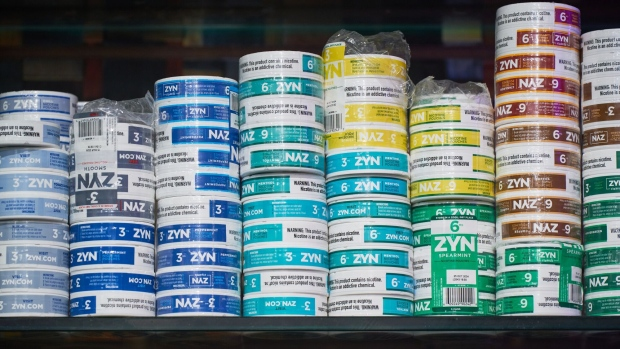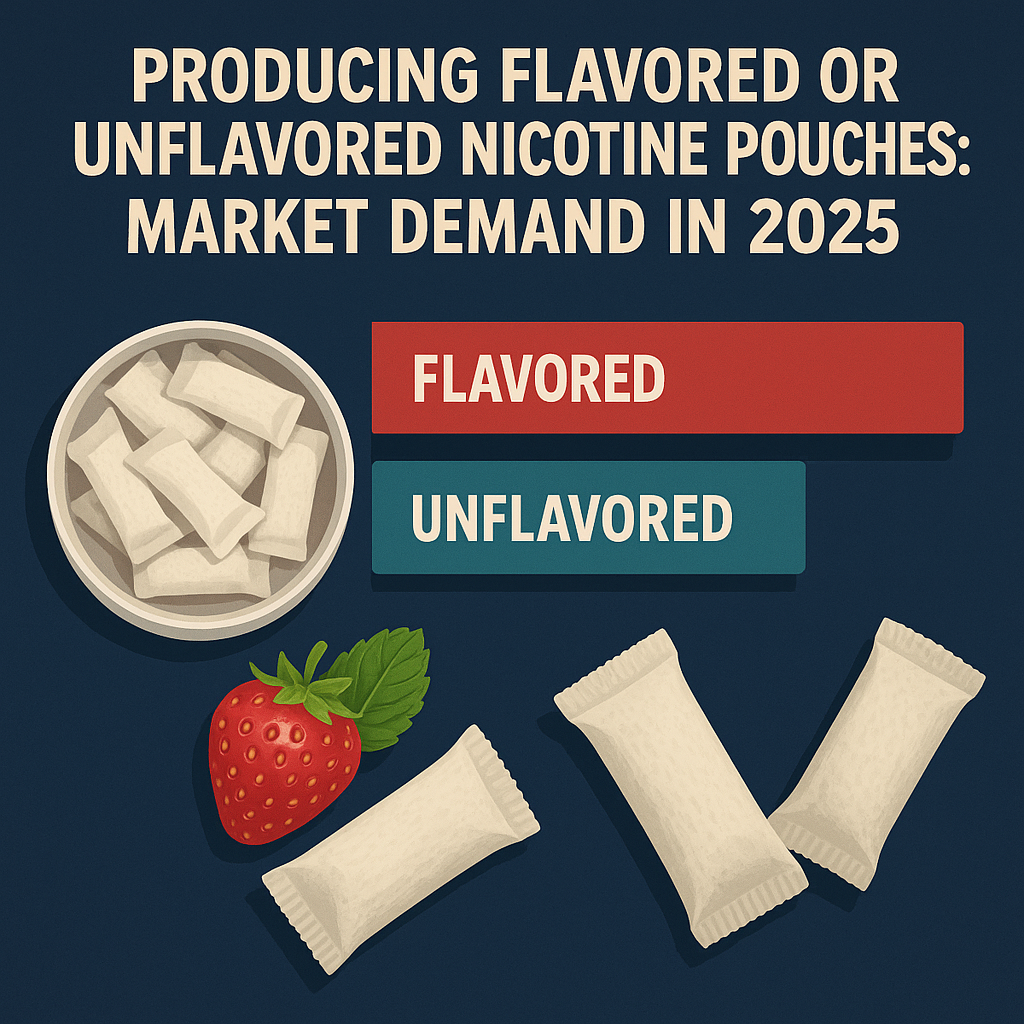Imagine this: your favorite nicotine pouch is nowhere to be found. Not at your usual store, not online, nowhere. This frustrating inconvenience is a sign of a much larger issue: the increasing fragility of global supply chains. Warships patrolling the Red Sea, droughts parching the Panama Canal—events once distant and abstract are now directly impacting your ability to get your hands on a product you rely on.
This isn’t just about nicotine pouches; it’s about the intricate web of interconnected systems that bring us everything from smartphones to sneakers. But for the nicotine pouch industry, the challenges are particularly acute, facing a triple threat of geopolitical conflicts, environmental factors, and increasing regulatory pressures demanding greater sustainability. These forces are compelling companies to rethink their strategies from the ground up.
In this article, we’ll delve into these challenges, explore the innovative solutions the industry is embracing, and examine how technology, diversification, and a commitment to sustainability are shaping a more resilient future for nicotine pouches.
Regulatory Roadblocks and the Rise of Sustainability

Beyond the immediate turmoil of global events, the nicotine pouch industry faces a growing wave of regulatory pressures. Governments around the world are increasingly scrutinizing the environmental and social impact of consumer goods, and nicotine pouches are no exception.
The EU’s Corporate Sustainability Due Diligence Directive, for instance, is a game-changer. It requires companies to ensure their entire supply chain—from the farms growing tobacco to the factories producing the pouches—is free from forced labor and other unethical practices. This means companies must not only clean up their own act but also ensure that their suppliers, and their suppliers’ suppliers, are doing the same.
It’s a tall order, but it also presents an opportunity. By embracing sustainability and transparency, nicotine pouch manufacturers can not only comply with regulations but also appeal to a growing segment of consumers who prioritize ethical consumption.
This shift towards sustainability isn’t just about avoiding penalties. It’s about building a more resilient and responsible industry that can thrive in the face of increasing scrutiny and changing consumer demands. McKinsey & Company Euromonitor
Adapting to Thrive: Strategies for a Resilient Future
Faced with this perfect storm of challenges, the nicotine pouch industry isn’t simply throwing in the towel. Instead, forward-thinking companies are embracing innovative strategies to not just survive but thrive in this turbulent global market.
One key approach is diversification of suppliers. The old model of relying heavily on a single source, often China, is increasingly seen as a liability. Instead, companies are adopting a “China Plus One” strategy, sourcing materials from multiple countries like Vietnam, Mexico, or India. This reduces the risk of disruptions due to geopolitical conflicts or natural disasters in any one location.
Companies are recognizing the importance of investing in local production to build supply chains that are self-sufficient and adaptable. Companies can decrease their reliance on lengthy and intricate supply chains by expanding their manufacturing capabilities locally. This not only decreases their vulnerability to disruptions but also has the potential to speed up delivery times and decrease their carbon footprint.
Deloitte United States Foley & Lardner LLP)
Tech on the Front Lines: Revolutionizing the Nicotine Pouch Supply Chain
The nicotine pouch industry isn’t just adapting to change – it’s driving it. Technological advancements are revolutionizing how these companies operate, turning potential roadblocks into stepping stones towards a more efficient and responsive supply chain.
Artificial Intelligence (AI), the quiet mastermind behind the scenes, is crunching massive amounts of data to predict disruptions before they even happen. Imagine a weather forecast, but for the complex world of global supply chain logistics. This foresight allows companies to proactively manage risks and optimize inventory levels, ensuring your favorite nicotine pouch is always on the shelf.
Meanwhile, the Internet of Things (IoT) acts as the eyes and ears on the ground. Tiny sensors embedded in shipments provide real-time visibility, tracking the journey of your pouches from factory floor to store shelves. This constant stream of data helps companies pinpoint bottlenecks, reroute shipments around delays, and ensure a smooth delivery process.
And then there’s blockchain, the digital ledger that’s bringing unprecedented transparency to the supply chain. By creating an unchangeable record of every transaction, blockchain ensures that everyone involved—from suppliers to retailers—is on the same page. This not only reduces disputes but also builds trust, a crucial ingredient in a complex global network.
These technological advancements aren’t just fancy gadgets; they’re game-changers. By harnessing the power of AI, IoT, and blockchain, nicotine pouch manufacturers are creating a more efficient, transparent, and responsive supply chain. This means fewer shortages, faster deliveries, and ultimately, a better experience for you, the consumer.
Case Studies: Leaders in Supply Chain Innovation
The strategies mentioned above aren’t just theoretical concepts; they’re being put into practice by some of the biggest players in the nicotine pouch global market.
Swedish Match, maker of popular brands like General Snus and Zyn, has been a pioneer in adopting advanced robotics and automation in their production facilities. This has not only increased their production efficiency but also improved quality control, ensuring consistent product quality for their customers. In addition, the company has made significant strides in sustainability initiatives, reducing their carbon footprint and optimizing shipping routes for greater fuel-efficient shipping and cost savings.
British American Tobacco (BAT), the company behind Velo and Lyft nicotine pouches, has also embraced technology as a key driver of supply chain transformation. By investing in digital tools and analytics, BAT has gained greater real-time supply chain visibility, allowing them to anticipate potential disruptions and make proactive decisions. They’ve also focused on financial strategies that balance cost management with strategic investments in supply chain resilience, ensuring they can weather any storm.
These are just a few examples of how nicotine pouch manufacturers are adapting and innovating to overcome supply chain challenges. By investing in technology, diversifying their suppliers, and prioritizing sustainability, they’re not only safeguarding their own businesses but also helping to build a more resilient and sustainable global supply chain for the future. S&P Global Euromonitor john-galt
The Nicotine Pouch’s Unpredictable Journey: Adapting to a Changing Landscape
The nicotine pouch industry faces a challenging landscape marked by geopolitical tensions, environmental shifts, and evolving regulations. These disruptions, while significant, are also catalysts for change and innovation.
Forward-thinking companies are diversifying suppliers, strengthening local production capabilities, and embracing technologies like AI and blockchain to build more resilient supply chains. Those who prioritize sustainability and smart financial strategies are well-positioned to lead in a market that increasingly values both resilience and responsibility.
The road ahead may be unpredictable, but it’s a journey towards a more adaptable and sustainable industry. The choices made today will shape the future of nicotine pouches for years to come. It’s inspiring to see companies rise to the challenge, paving the way for a more resilient and responsible future.
Understanding these challenges can empower consumers to make informed choices. For manufacturers, staying adaptable is key to success. By working together and embracing innovation, we can ensure the nicotine pouch industry thrives while minimizing its environmental impact.











